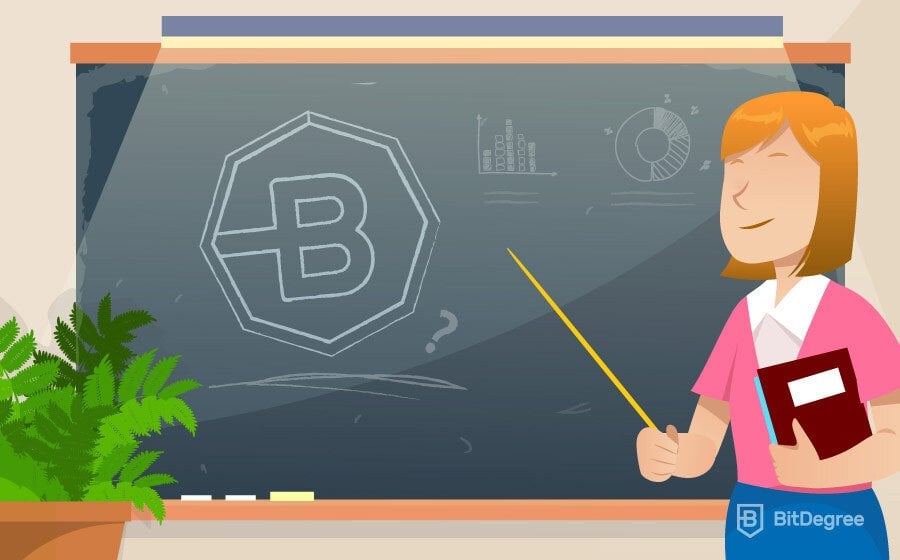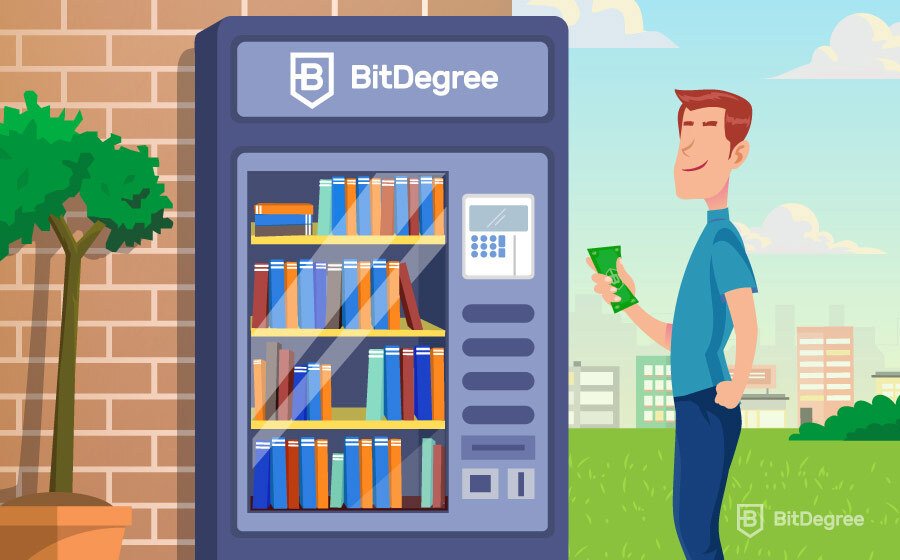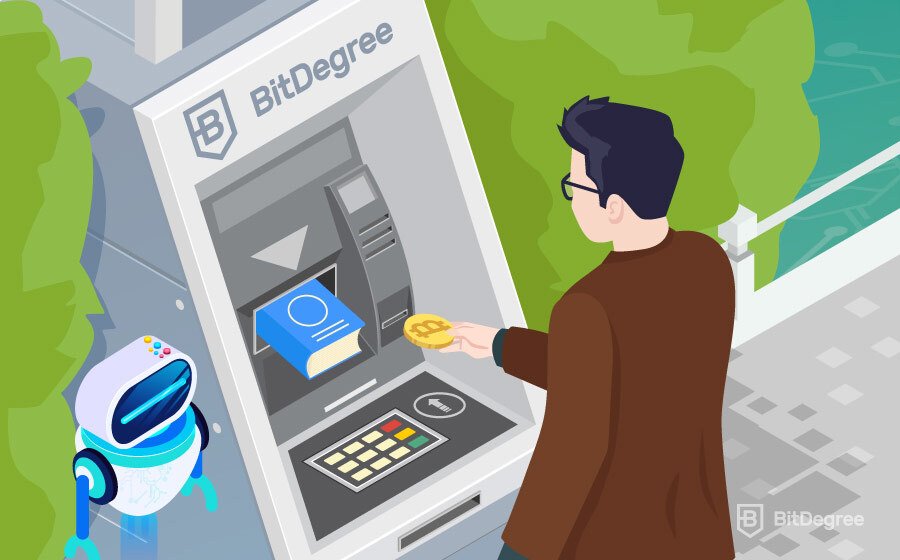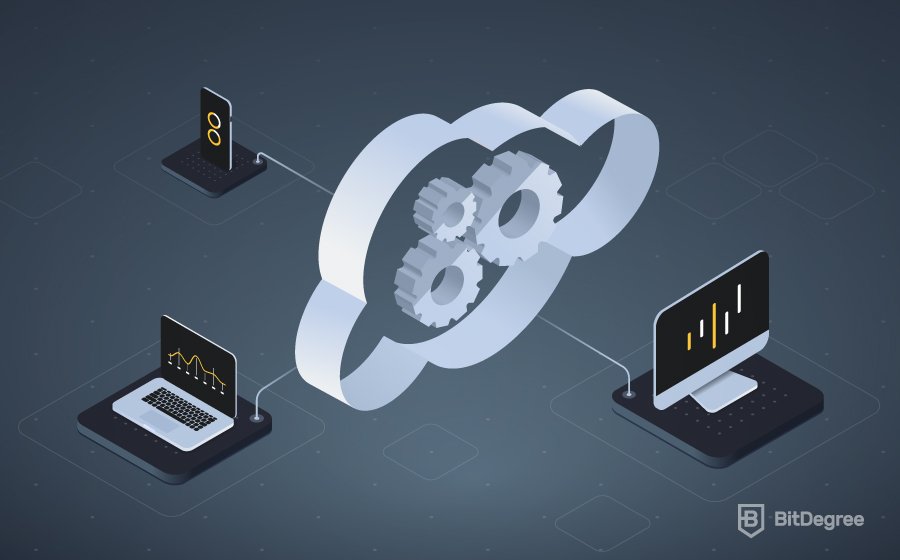Two Types of Cloud Certifications
Before you start looking for the best cloud certifications available, you should first think of what you wish to learn and what skills you’d like to gain. This way, you will be able to narrow your scope down to just one type of cloud certifications: vendor-specific or vendor-neutral ones.
Just like the name suggests, a vendor-specific cloud certification focuses on one specific cloud platform, such as Amazon Web Services (AWS), Google Cloud, or Microsoft Azure. While it does cover some of the general cloud computing basics, the absolute majority of the time you’ll spend studying will be directly related to the products and services of the said provider. Chances are you will also have to learn the intricacies of the platform that have less to do with the actual cloud solutions and more with their management (e.g., pricing and billing).
The good news is, getting a cloud certification guarantees you have enough practical skills to actually start working with a specific cloud platform, and if your new job is using it on a daily basis, the process of onboarding can be kept to a minimum, saving time for both you and your new boss.
A vendor-neutral cloud certification, on the other hand, is a lot more general-focused: revising for one doesn’t normally include diving into particular products (they might be used as examples, of course, but they’re never the main topic). Instead, you’ll get to know general best practices of cloud computing, master its underlying principles, and gain a strong, universally-applicable understanding of this technology.
Having a vendor-neutral cloud certification listed on your resume might help you impress an employer who’s using hybrid cloud or multi-cloud solutions and needs someone whose knowledge is not limited to one specific platform.
Best Cloud Certifications that Focus on a Specific Provider
When it comes to vendor-specific cloud certifications, virtually every big provider has their own program:
- Amazon Web Services (AWS) offers 12 cloud certifications in four categories: Fundamental (Cloud Practitioner), Associate (Developer, SysOps Administrator, and Solutions Architect), Professional (DevOps Engineer and Solutions Architect), and Specialty (Database, Data Analytics, Machine Learning, Alexa Skill Building, Security, and Advanced Networking).
- Microsoft Azure currently has 15 cloud certifications available in Fundamentals (Fundamentals, Data Fundamentals, and AI Fundamentals), Associate (Administrator, AI Engineer, Security Engineer, Developer, Database Administrator, Data Scientist, and Data Engineer), Specialty (IoT Developer and Azure for SAP Workloads), and Expert (Solutions Architect and DevOps Engineer) tiers. There’s also an MCSD: App Builder certification that doesn’t fit into any of these categories, but it’s about to be retired and made unavailable in January 2021.
- Google Cloud lets you obtain one Associate level (Cloud Engineer) and 8 Professional level cloud computing certifications (Cloud Architect, Cloud Developer, Data Engineer, Cloud Security Engineer, Cloud Network Engineer, Cloud DevOps Engineer, Machine Learning Engineer, and Collaboration Engineer). There’s also a Google Workspace user certification available, but it has more to do with Google’s office-focused products (e.g., Docs) and less with actual cloud computing.
- Alibaba Cloud has a bunch of ‘Clouder Certifications’ (that are more like online tutorials, as they focus on a single skill and take under an hour to complete), as well as five Specialty certifications (DevOps, Networking, Data Analysis, Machine Learning, and Relational Databases) and 9 Professional certifications (3 more announced already; 12 actually translates to four domains and three levels of cloud certifications for each).
- Oracle Cloud offers 3 Oracle Cloud Infrastructure (OCI) certifications (Foundations Associate, Developer Associate, and Architect Professional)
- IBM Cloud has 3 cloud certifications available. There are no distinct tiers: the distinction lies in roles (you can become a certified Solution Advisor, Application Developer, or Cloud Solutions Architect)
We’re pretty sure that’s not even the whole list of vendor-specific cloud certifications available – we only checked the providers that were big enough to be considered by Gartner when it comes to shaping its Magic Quadrant for Cloud Infrastructure and Platform Services! Out of all seven players the company evaluated, only one (the smallest one – Tencent Cloud) didn’t offer its own cloud computing certification.
However, not every provider is equal – and the same can be said about cloud certifications. How do you pick the one that’s worth investing your time, effort, and money? There are a few approaches you can take here. First of all, the more a certain platform is used worldwide, the higher the chance your proficiency will be more than welcome in your future workplace.
So what are the best cloud certifications to have? As of 2021, AWS is the unmatched leader in terms of market share, owning almost half of the global cloud market. Naturally, it is your safest bet, followed by Microsoft Azure and Google Cloud.
Which Cloud Certification Pays Best?
The same three provider names can be found in Global Knowledge’s Top-Paying IT Certifications list for 2020. Out of the total fifteen certifications mentioned, five are cloud-related: there’s one cloud certification issued by Google, two by AWS, and another two by Microsoft. However, the order is a bit different this time: Google comes at the very top with $175,761 average annual pay for a Certified Professional Cloud Architect, AWS occupies positions 2 (AWS Certified Solutions Architect – Associate; $149,446) and 8 (AWS Certified Cloud Practitioner; $131,465), and Microsoft takes 11th (Microsoft Certified: Azure Fundamentals; $126,653) and 12th (Microsoft Certified: Azure Administrator Associate; $125,993). Still, there is a little catch: the Google cloud certification is of the Professional level, while the other four are either Fundamental or Associate level and thus easier to obtain.
Combining all the data might suggest AWS Certified Solutions Architect – Associate is at least one of the best cloud certifications to acquire: it focuses on a highly popular platform, is well rewarded financially, and doesn’t require years and years of experience.
Aiming for a More General Cloud Certification
Picking a vendor-specific cloud computing certification might seem like a no-brainer: you pick the platform you’d like to work with, and the certification program comes with it. It gets a little trickier when you decide to go for a vendor-neutral one: which providers are trustworthy, and what exactly does each certification cover? Are they really all-encompassing, or are so focused on smaller aspects of cloud computing?
One of the best-known (and, according to its own website, ‘the only internationally recognized’) providers of vendor-neutral cloud computing certifications is the Computing Technology Industry Association (CompTIA), which offers two types of credentials: Cloud Essentials+ and Cloud+. The names are pretty self-explanatory: the former one covers the foundations (such as cloud concepts and business principles of cloud environments) and is aimed at non-techies as well as IT professionals, while the latter entails a lot more technical topics (i.e., management, maintenance, security, troubleshooting, configurations and deployment) you need to know for data center jobs. They do promise to cover ‘collecting and analyzing cloud products and services information’, which means you will get to research service providers as you study for your cloud certification exam.
However, while CompTIA itself says their cloud computing certification (Cloud+, in particular) will boost your earning potential, the statistics found on PayScale define the average annual pay as $80,092 – which, while not too shabby, is noticeably lower than that of the best-paid vendor-specific cloud certifications. Actually, if you went back to the Top-Paying IT Certifications list we discussed before, you’ll notice that every cloud certification on it is vendor-specific. This does not mean vendor-neutral credentials don’t let you earn more – however, it’s typically not enough. They’re often a great first step before diving into specific platforms, but you still need to be able to find your way around their products and services, which leads to a lot of specialists getting cross-certified.
Picking the Best Cloud Security Certification
A smarter approach to choosing a vendor-neutral cloud certification is going for a specific function rather than provider: by concentrating on a smaller variety of problems, you can dive deep, really get to know the solutions available, and become an expert many companies would welcome. While the choice of such credentials is not that wide, there are a few great choices when it comes to cloud security – Certificate of Cloud Security Knowledge (CCSK; issued by Cloud Security Alliance) and Certified Cloud Security Professional (CCSP; issued by (ISC)² – The International Information System Security Certification Consortium).
It’s even easier to pick the best cloud security certification for you knowing that CCSK mainly covers the fundamentals (the website states it ‘is widely recognized as the standard of expertise for cloud security and provides you with the foundations you need to secure data in the cloud’), and CCSP aims for a more professional level of knowledge, or having ‘the advanced technical skills and knowledge to design, manage and secure data, applications and infrastructure in the cloud’.
The difference is also clear when you check the target audiences of both cloud certifications. CCSK boasts of being great from everyone from a consultant to a security analyst, and the CCSP defines itself as ideal for information security leaders. According to PayScale, CCSP actually lets you earn a lot, too: the US’s annual average is currently $119,812 (there are no clear data on CCSK salaries available). This should not come as a surprise: the smaller the niche, the fewer experts you can find, and the more valued they are by businesses and organizations.
What Comes After Deciding
Once you pick the best cloud certification for you, you need to research it well and choose relevant training. We’d recommend you to look into online courses: they’re easier to update than, say, books, so the information is always fresh – plus, you get the convenience of learning anywhere, anytime. If you’re interested in AWS training, for example, you might want to check out BitDegree Academy – by combining video lectures with practice tests, hands-on labs and exercises, and other learning techniques, it provides you with an effective and engaging learning experience.
After you get certified, don’t stop there: the world of cloud computing is huge and ever-growing, so there’s always something new to learn and some new solutions to master. Who knows – maybe getting a strong foundation of knowledge will lead you to one day obtaining a cloud architect certification? The more you know, the more you improve, the more rewarding your career can get in both emotional and financial senses!











